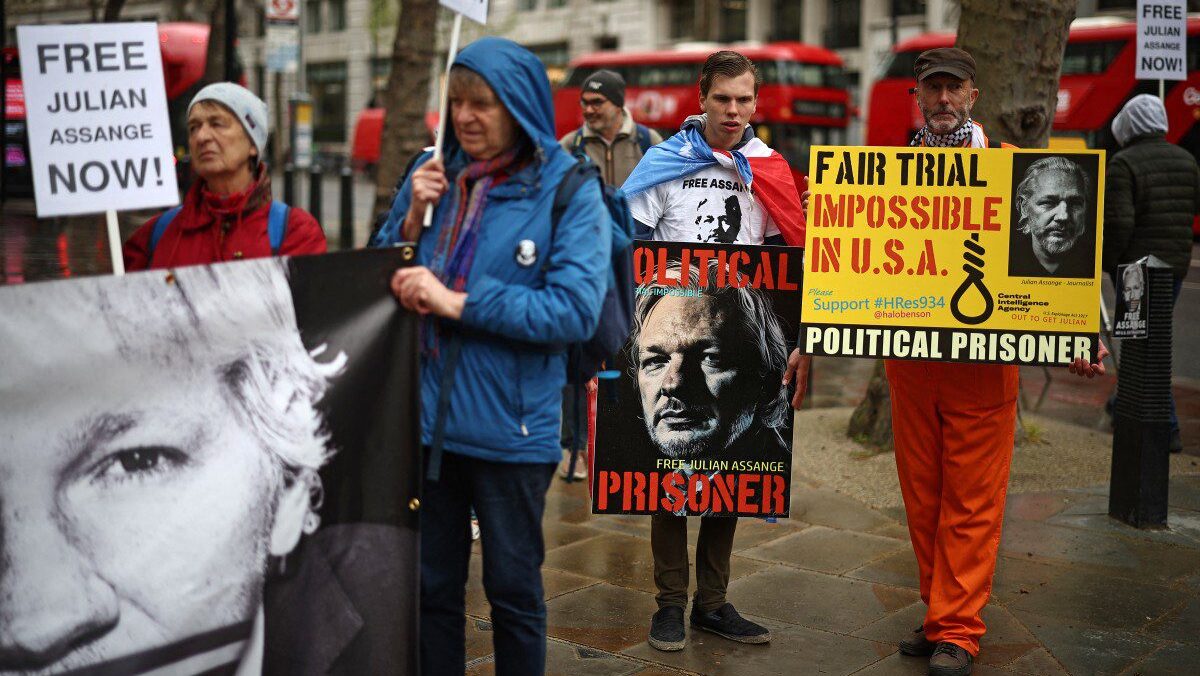
Photo: HENRY NICHOLLS / AFP
British High Court judges could consent to Julian Assange’s extradition, permit a full appeal, or even free him at a hearing next week. The WikiLeaks founder faces 175 years in prison for publishing classified documents that contained evidence of alleged war crimes, torture, and extrajudicial killings using drones.
Previously, Stella Assange, Julian’s wife, has said assurances from Washington do “nothing to relieve our family’s extreme distress about his future.” Kristinn Hrafnsson, WikiLeaks’ Editor-in-Chief, described the judicial process as “rigged,” the case as “crooked” and Assange as a victim of “institutional corruption.”
Controversy surrounding the case has also prompted a cross-party group of MPs to call for an inquiry into the role of the UK Crown Prosecution Service in creating such distress.
Key concerns going into Monday’s hearing include:
